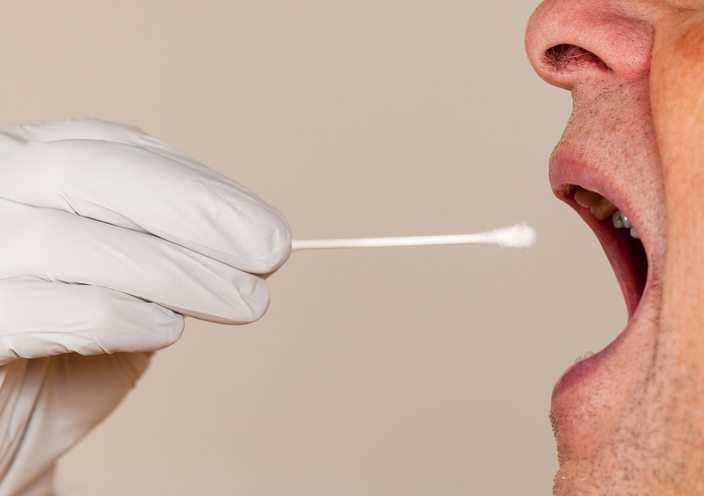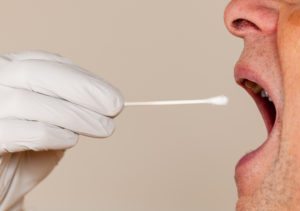The Underrated Importance of Saliva

 Unless you’re a Newberg family dentist, you probably don’t spend much time thinking about saliva. While the saliva your mouth produces certainly doesn’t have much appeal, it does play an incredibly important role in helping to protect your long-term oral health. That’s because saliva acts as the body’s natural defense mechanism against plaque, which uses the sugars we consume to produce harmful acids that slowly erode away tooth enamel. Saliva works to wash plaque acids away from the surface of our teeth, thereby helping to lower our risk for tooth decay and gum disease.
Unless you’re a Newberg family dentist, you probably don’t spend much time thinking about saliva. While the saliva your mouth produces certainly doesn’t have much appeal, it does play an incredibly important role in helping to protect your long-term oral health. That’s because saliva acts as the body’s natural defense mechanism against plaque, which uses the sugars we consume to produce harmful acids that slowly erode away tooth enamel. Saliva works to wash plaque acids away from the surface of our teeth, thereby helping to lower our risk for tooth decay and gum disease.
When your body starts to produce less saliva than normal, it just might be an indication of a more serious underlying condition. So that you can better appreciate the important role saliva plays in protecting your health, and better understand what potential problems you might be facing should your saliva flow start to stop, here are a few ways how saliva might reflect your overall health.
Dry Mouth
You’ll probably be surprised to discover that the average person swallows roughly half a gallon of saliva each day. While this may seem a little disgusting, salvia fulfills several important functions.
In addition to acting as a buffer that works to diffuse plaque acids, saliva also works to wash way foods particles and harmful oral bacteria from the mouth, thereby reducing the risk for gum disease. Saliva also contains a number of important digestive enzymes that make it easier for the body to process the foods we eat.
If you suffer from dry mouth, feel frequently parched, or often wake up with a sore throat, you need to talk with Dr. McLeod about your risk for dry mouth during your next appointment. Dr. McLeod can help diagnosis the cause of your condition and offer treatment solutions that will help restore saliva flow back to normal.
Oral Infections
Oral thrush, an oral infection caused by an excess buildup of yeast, causes saliva to become cream or white-colored, and patchy. Thrush frequently builds up on the gums, tonsils, roof of the mouth, tongue, and inner cheeks. Oral thrush is caused by an excessive buildup of the fungus Candida albicans – which the mouth normally has but in lower levels – and is fairly common in seniors, infants, and people with a compromised immune system. Overuse of mouthwash, wearing dentures, smoking, and diabetes can also increase an individual’s risk for thrush.
Diabetes
In recent years, a lot of exciting breakthroughs have begun to occur in the field of saliva testing. Researchers have identified saliva as a simple and effective way to collect a patient’s genetic information without having to rely on more invasive methods such as a blood sample. Not only is saliva easier to collect than blood, it can also be used to provide immediate assessments for doctors in the office or patients at home.
Saliva contains many of the same biomarkers as blood. As saliva testing continues to improve, health care providers will be able to measure antibodies, hormones, electrolytes, and proteins. Saliva tests can even detect a patient’s glucose levels. Numerous studies have found links between oral health and diabetes, which can reduce saliva flow and cause dry mouth to develop.
Genetic Testing
While discovering what genetic problems may lurk in the family tree used to require dusting off old photo albums and asking questions about distant relatives, saliva testing offers to soon make that all obsolete. The ability to provide a saliva sample at home, rather than travel to a lab to provide a blood sample, has enabled a number of exciting breakthroughs in at-home genetic testing. Whether it’s learning about the risk for Parkinson’s, Alzheimer’s, or another form of disease, saliva samples offer easy genetic testing that can help patients gain a better understanding of their health.
